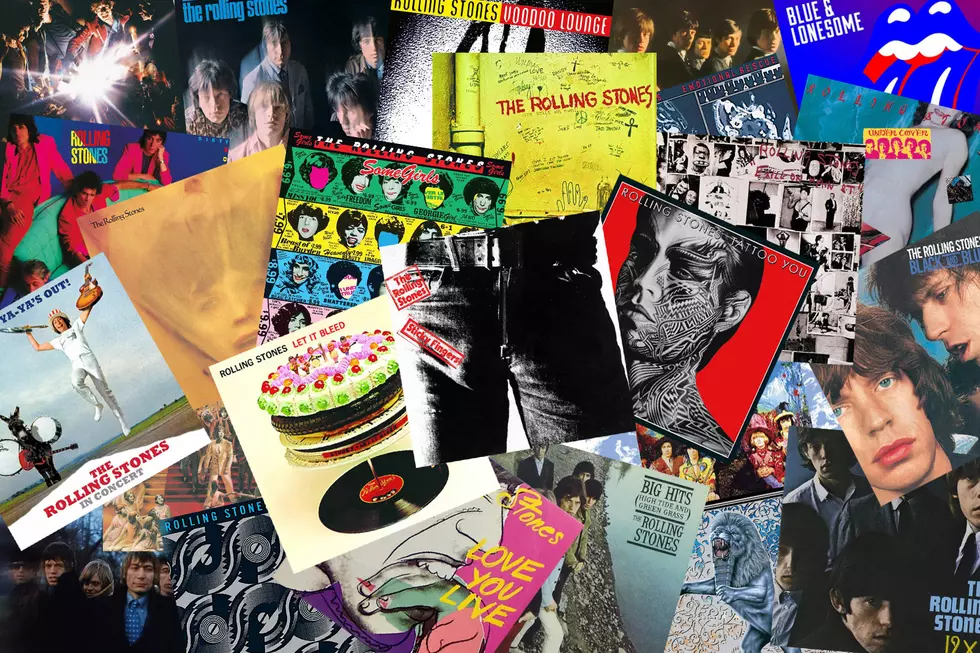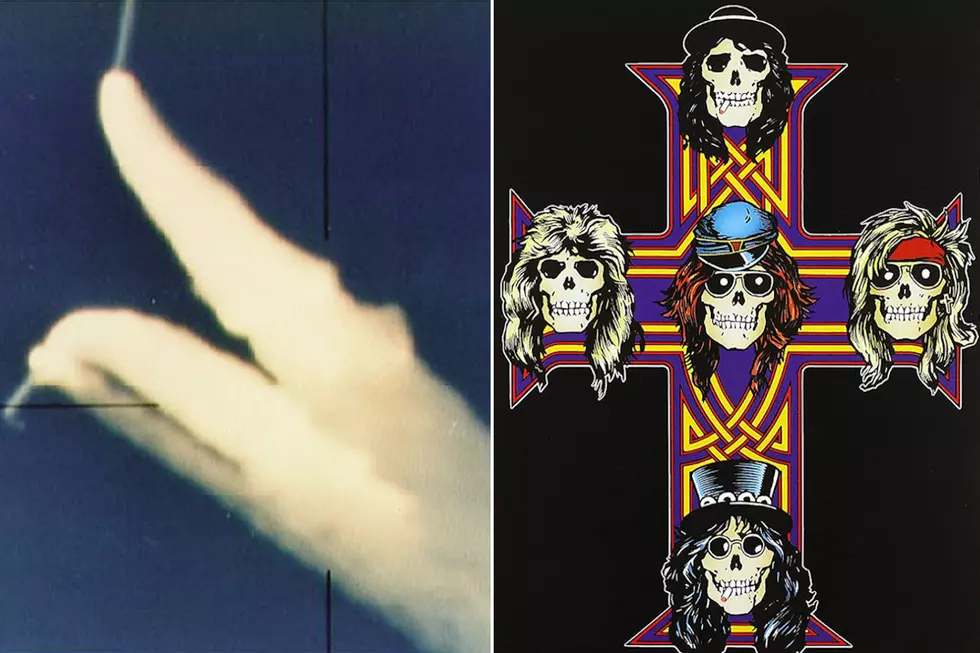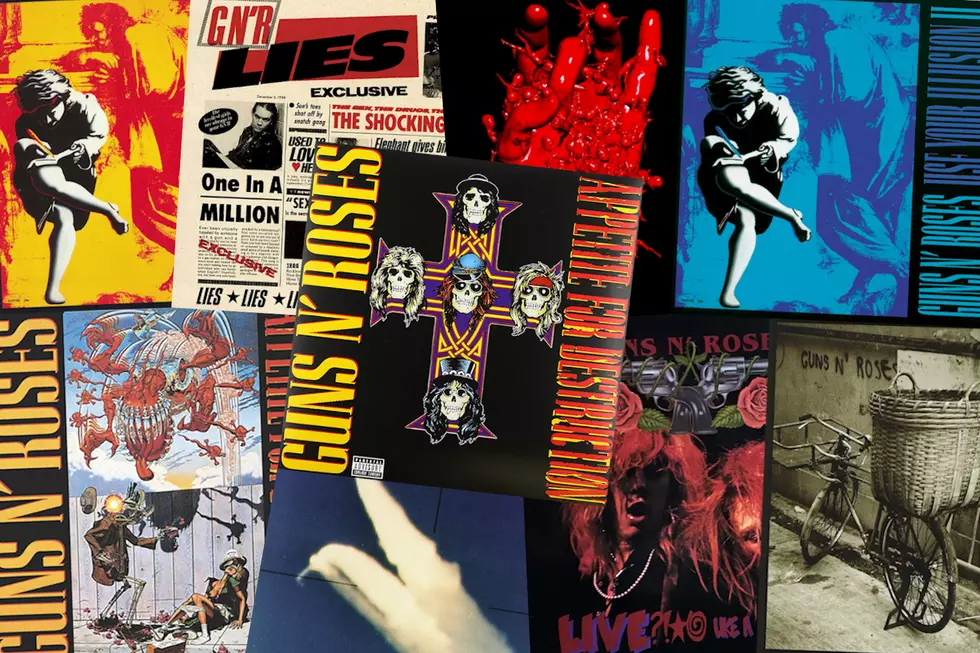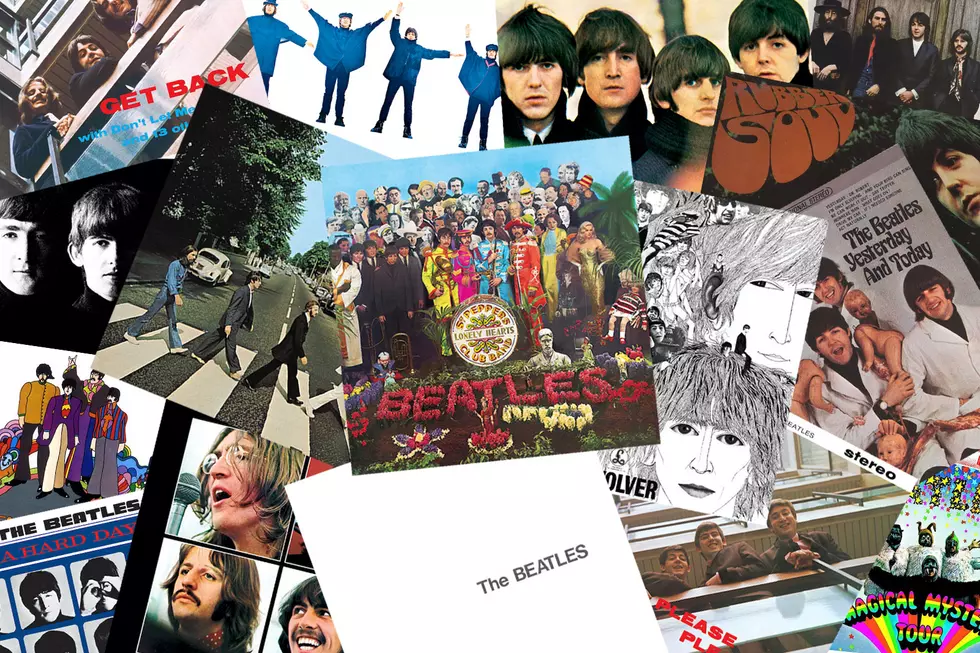
Rolling Stones Album Art: The Stories Behind 27 Famous LP Covers
The Rolling Stones' album art tells the band's story as well as any song.
At first, we find a brash quartet bursting onto the scene. The early LP images are unsmiling, shadowy, already dangerous. A couple of years later, they begin yielding to musical trends for the first – but certainly not last – time. Thankfully, they only briefly dabbled in psychedelia.
As the '60s wound down, the Rolling Stones finally found their musical place, toughening their sound and hardening their focus. The albums were knowing and gritty, inside and out. The new decade found Mick Jagger moving in jet-set circles, however, so the music he wrote with Keith Richards was soon paired with imagery from some of the art world's biggest names – most notably, Andy Warhol.
Along the way, there were notable experiments with collages, a working zipper, die-cut sleeves and thermography. Albums that were overly ornate (1967's Their Satanic Majesties Request or 1997's Bridges to Babylon) were matched with similarly over-the-top images. Rootsy records like 2016's Blue and Lonesome echoed their stripped-down origins.
Admittedly, some records (like 1991's live Flashpoint) are so featureless as to seemingly have no stories attached at all. But more often, this band's narrative could be broadly understood from the vantage point of any local music-store shelf: When they descended into a messy period of addiction in the '70s, the art from Exile on Main St. directly reflected that; when they sold out in the '80s, Dirty Work told the tale.
Find out more as we explore the Stories Behind 27 of the Rolling Stones' Famous LP Covers.
Rolling Stones Album Art: The Stories Behind 26 Famous LP Covers
Gallery Credit: Nick DeRiso
Real-Life ‘Spinal Tap’ Stories: Rolling Stones
More From Rock 104.1










